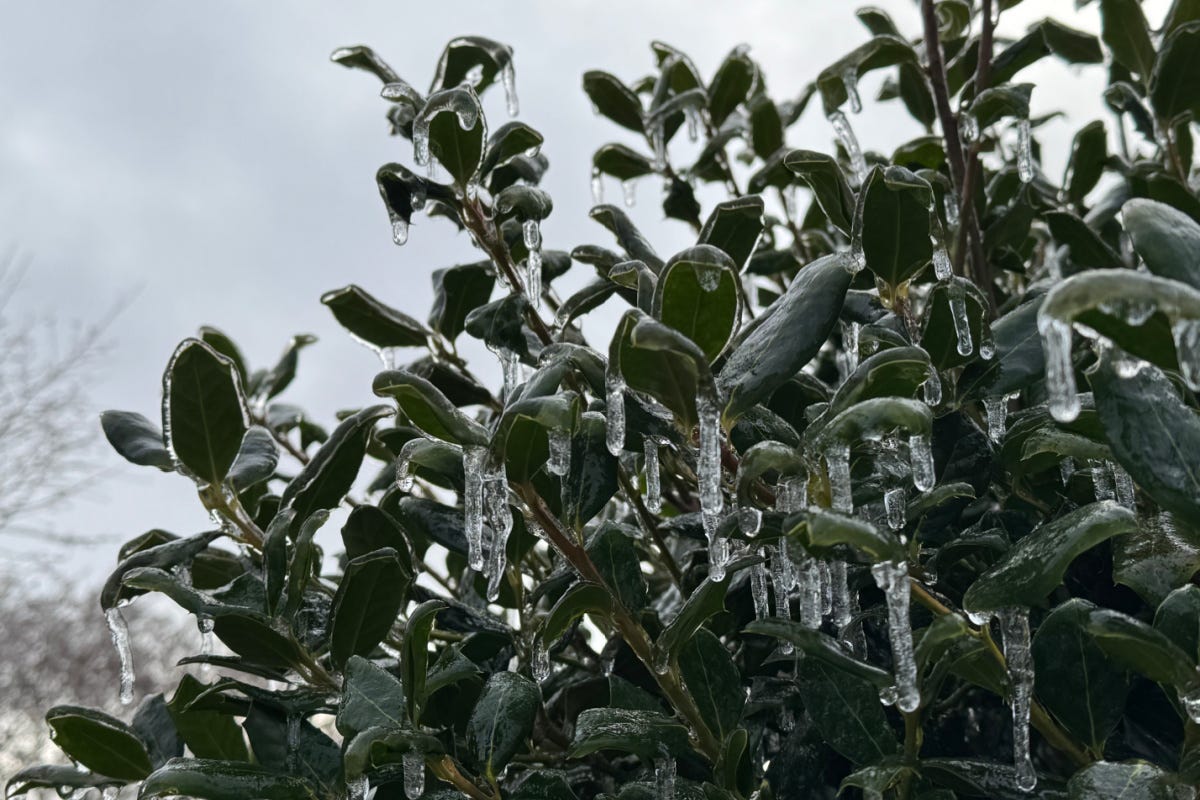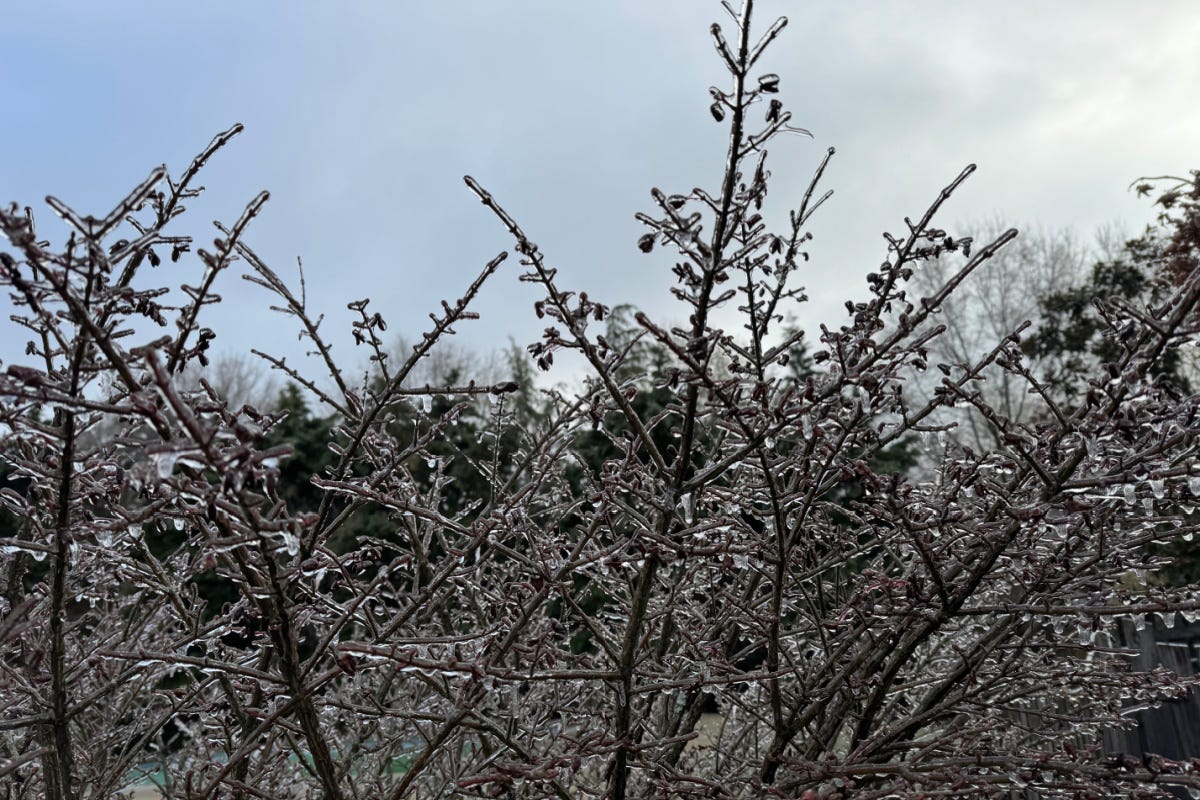We’re barely halfway through the first month of the new year, and already a literal inferno has leveled a large part of Los Angeles. And while the embers are still blazing in the West, a veritable storm of ice has blanketed parts of the South.
So, here we are, with our flailing attempts at new hope and new joy in the new year, and the world around us is already on fire and ice.
And yet…
Most Bible scholars agree that joy is a predominant theme in the Book of Philippians, and yet, when Paul wrote this letter, he was in prison, chained to a Roman guard.
How could Paul have joy in such circumstances?
Despite his dreary situation, Paul prayed words of thanksgiving to his Friend in high places, and he wrote letters of encouragement to his friends in faraway places.
Paul showed us that our joy doesn’t come from the here-and-now; our joy comes from the future-when. In other words, real joy doesn’t come from the events surrounding us now, because true joy is rooted in the future when we are face-to-face with Jesus, when we are made complete in him.
A life of deep joy comes from a heart that learns to see beyond the here-and-now and awaits with great hope the eternal life we’ll have with Christ.
But before we get to eternity, we have the dailiness of life in a broken world to contend with, and I never want to wax over this reality.
To be completely forthright, joy has never come naturally to me.
When I look at the women in my family line — from my mother, to my grandmother, to my great grandmother — it’s clear that I come from a long line of serious women. They’re hard workers, and they keep a clean house. They’re all readers, too, and they happen to play a mean game of Scrabble.
But joy? I never witnessed much of that growing up.
To be sure, a handful of tragedies made the very thought of joy seem more like a cruel taunt than an actual possibility.
All of that to say, when it comes to hard work and seriousness, I come by it honestly. But when it comes to joy, I’ve always been somewhat bereft in that department. The Bible, however, says that joy is a fruit — or a byproduct, if you will — in a believer’s life. Joy is a key virtue, which means it should be evident in the lives of believers.
So, being the studious person I am, I have taken the topic of joy very seriously, and I have made it the subject of much study. All kidding aside, I do believe joy is something we can cultivate in our lives with intention, no matter what is happening around us.
This time of year is when a lot of folks will buy a new calendar and maybe chart some new goals.
Some people may even select a “word of the year.” This trend began circulating on social media (where else?) several years ago. Usually, people will pick a word that has something to do with a goal they have or something they hope will happen in the coming year.
In the early days of blogging, I participated in this trend but soon let it go. Instead of a word, I decided one year to select a fruit of the Spirit and ask God to help me grow in that area of my life in the coming year.
My pastor wisely says it’s better to be known for your fruits than your gifts.
His words resonate with me because I grew up in a church tradition that placed a lot of emphasis on the gifts of the Holy Spirit. Sadly, the churches of my youth focused more on the gifts than the Giver.
But what about the fruits of the Spirit?
I think the whole world would be a better place if we all grew more in the areas of love, joy, peace, patience, kindness, goodness, faithfulness, gentleness, and self-control.
I have to be honest with you though; this isn’t an exercise for the naively optimistic. The year I took on gentleness turned out to be one of the toughest years of my life. By the end of the year, I hardly felt gentler. In fact, I was pretty sure I needed a do-over. But then I wondered, what would that year have looked like if I hadn’t been genuinely asking God to guide me in gentleness?
This year I’m asking God to help me grow more in the area of joy.
But even as I write this, I’m reminded of these wise words:
In my grief journey, I have learned more from the silence of God than the platitudes of others. —Thomas Allbaugh, Ph.D.
That is truth.
We sometimes have little choice but to walk through a hellish road on fire, or a frigid path on ice.
This is why I’m not looking for joy the way the world looks for it. I’m thinking joy is mostly found in quiet, unassuming ways. And perhaps in ways that surprise us.
Because I am convinced that a deeper peace can be found when sitting in the silent presence of God than anywhere else.
Christmas may be over, but Christ is always with us. His presence, steadfast and sure.
This is my prayer for 2025, that no matter what this coming year may hold, a quiet joy will grace each day in the most surprising of ways.
Shalom.
Denise
What is your prayer for the coming year?
A Few Notes…
*At the top of this piece, you may notice a button that says “audio.” You can now either read or listen to each published piece.
*My husband took these photos in our backyard this past weekend.
*A small portion of this piece was excerpted from the Introduction in my devotional study called Word Writers: Philippians.
*Thank you for your vote of confidence when you tap on the “heart” at the top of each post. And, as always, you are welcome to share these words with a friend.
And Lastly…
*No part of this newsletter — nor anything I have ever published — has been made with Artificial Intelligence (AI) or ghostwriters. All of my words, including any accidental typos, are my own, except for when I quote others with appropriate citations and links.










Thank you for the newsletter. I think picking a word from the fruit of the spirit is a great way to grow. And thank you for the quote from Thomas Allbaugh. Blessings
“This is why I’m not looking for joy the way the world looks for it. I’m thinking joy is mostly found in quiet, unassuming ways. And perhaps in ways that surprise us.”
What beautiful words that made my heart sing!